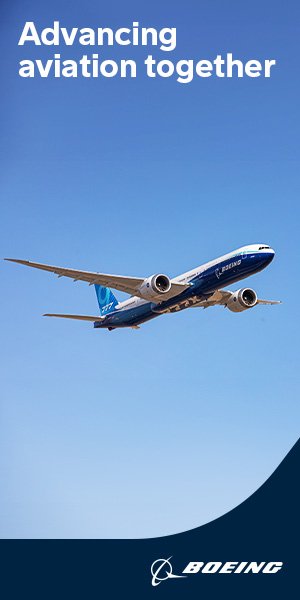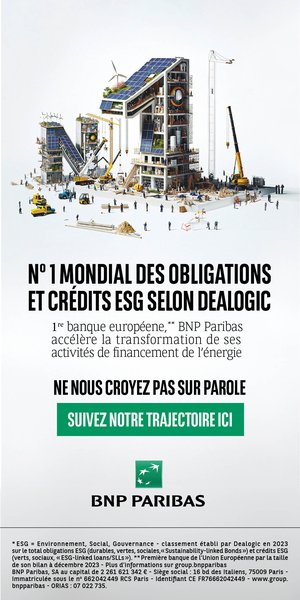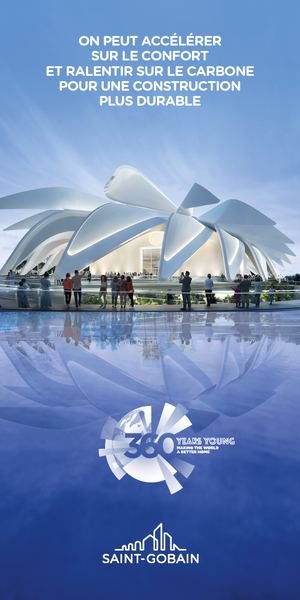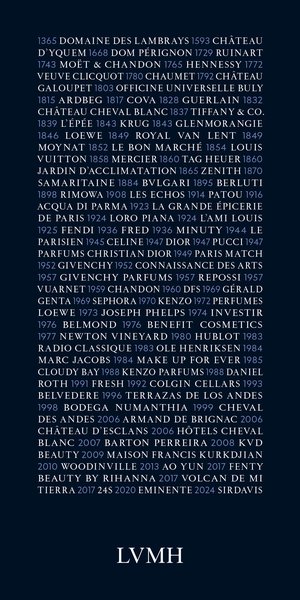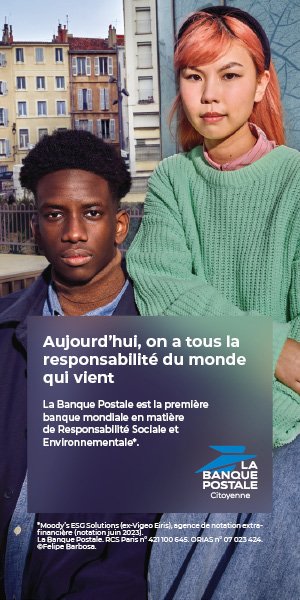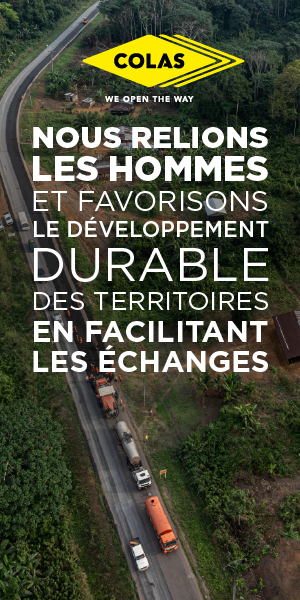Politique Internationale — How did the Paris Peace Forum initiative come about? What makes you unique on the international stage, which can sometimes seem very crowded?
Justin Vaïsse — The creation of the Paris Peace Forum six years ago, in 2018, was based on the observation that international coordination was inadequate: we were not managing to come up with the right responses to all the global challenges facing us. While dialogue between states at the UN is well established, it is far from always effective because of tensions between powers and the rigidities of formal multilateralism – each diplomat sticking to his or her own language. We wanted to propose a more flexible ‘multi- actor’ approach, involving civil society and the private sector when they are useful. This is the case not for the most burning issues of international security, but for most global problems such as climate change, global health, artificial intelligence (AI) and technology in general, or the ecological transition. No one is left out: our multi- stakeholder approach also demands North-South parity. If we want to move beyond the narrow definition of peace as the absence of war, we need to respond to the challenges that threaten peace and build an order that works for everyone. This is the title of this seventh edition of the Forum.
P. I. — Are there more conflicts today than there were ten or twenty years ago?
J. V. — There are more conflicts, yes, and they are particularly visible at the moment with the wars in Ukraine and Gaza. But beyond an always risky tally, there is indeed more conflict than at the beginning of this century, as multipolarity progresses and American superiority crumbles. The world’s policeman is being challenged, and is taking his responsibilities less to heart. Admittedly, it came to Ukraine’s rescue: the challenge was too blatant. But today, no one in Washington would dream of launching a military intervention, as America did regularly in the two or three decades following the Cold War. Above all, the conflict has gone underground and is becoming permanent: Thomas Gomart, Director of the French Institute of International Relations (IFRI), talks of ‘invisible wars’ between the major powers, particularly in cyberspace, information wars, intelligence wars, etc. In another recent book, Jean-Baptiste Jeangène Vilmer puts forward the idea of ‘permanent war’, a war that is engaged in a process of de-specification, in other words a gradual reduction in what distinguishes it from peace: It is no longer confined to certain activities, carried out by certain people, in certain places, at certain times, he explains.
P. I. — What about economic warfare? Has it intensified in recent decades? Have certain companies become even more the armed wing of governments?
J. V. — Jeangène Vilmer and his co-authors analyse a situation in which the ‘weaponisation of everything’ prevails: the economy, energy, hunger, fishing, refugees, information, law, health, etc. They are right, even if companies have naturally been at the heart of economic warfare for a very long time. Globalisation had made us forget that they had a nationality, but that parenthesis is well and truly closed, as we can see from the news of recent years, from Huawei and TikTok to Space X and Microsoft. When the principle of economic sanctions is decided against a particular state, companies are inevitably under pressure to apply the rules, or not. And because they hold a larger share of cutting-edge technological resources than they used to – space, cyber, social networks, microchip manufacturing, etc. – they are less immune to geopolitical imperatives than they used to be.
P. I. — What are the most pressing areas of tension today? If you had to draw up a scale of the risks of global imbalance, which areas or players would you focus on first?
J. V. — These days, we spontaneously think of the Sino-American confrontation. With a backdrop of memories of the Cold War, when the USA and the USSR did not challenge each other directly but through a series of peripheral conflicts in Korea, Cuba and Vietnam, among other regions of the world. Is such a scenario likely to recur? The Taiwan question offers a certain analogy. Some say that Beijing will never decide to intervene, because it would be too risky; others say that an operation is inevitable, because China will not be satisfied with the status quo forever. To be honest, nobody knows.
On the fringes of this issue, the conflict between Israel and Hamas – yet another episode between Israelis and Palestinians, one might say – and the war in Ukraine are currently the two most visible and worrying flashpoints. In Ukraine, some see the current war as the result of recklessness or even provocation on the part of the United States and the European Union: this is the Russian thesis of a war not against Ukraine, but against a threatening NATO, which would inevitably advance its pawns into the ‘natural’ zone of Russian influence. I, for my part, belong to the other school of thought, which believes that Moscow is reaffirming by military force – and in the process violating the United Nations Charter, the 1994 Budapest Memorandum and a number of its international commitments – what it can no longer obtain naturally from its neighbours, who prefer to join the orbit of the European Union, its prosperity and its rules of law rather than the authoritarian Russian system.
P. I. — At the same time, are there any wars that could be described as second-tier?
J. V. — These are not second-tier conflicts: they are conflicts that we don’t watch, that we sometimes choose to ignore, or at least that the media don’t see. I’m thinking of Sudan, where a terrible civil war is going on, following the one in Ethiopia in recent years, and which many countries are fuelling. In the Sahelian strip, French troops have finally withdrawn – no doubt they stayed too long after the intervention in 2013, which was justified – but nothing has been resolved for all that. On the contrary, the jihadists are on the offensive again, as we can see in Mali and Niger. Elsewhere, in countries such as Syria, Iraq and Afghanistan, there are still pockets of severe fighting. And then there are always the rather curious forms of antagonism, such as the ‘war of the sticks’ between the Chinese and the Indians at the gateway to the Himalayas. Both sides agree that escalation must be avoided, so the soldiers fight each other with sticks, but nobody fires the first shot. Let’s hope it lasts...
P. I. — The American election has obviously had an impact on international geopolitics...
J. V. — Donald Trump has shown himself to be such an unpredictable character, driven above all by his unbridled ego, that we should be wary of making any definitive predictions about his leadership of a coherent international policy. However, the man does have a few political markers: he scorns the alliance with Europe, wants to detach himself from his historic allies and claims that NATO is a game of fools in which the United States is the prisoner. At the same time, he makes no secret of his esteem for autocrats of all stripes. This same Trump is not, however, a braggart with the instinct to go to war: on the contrary, he has no desire for his country to ‘get its feet wet’ in any pronounced interventionism.
P. I. — After examining both the sources of tension and the attitudes of the major chancelleries, should we conclude that all these conflicts are linked or, on the contrary, that each has its own logic?
J. V. — Of course, there are always local causes of conflict but, to varying degrees, we can see everywhere the effects of the redistribution of power in the international system, and more specifically the emergence of a multipolar world in which the United States is increasingly challenged in its role as hegemonic power and guarantor of world order – and increasingly reluctant to assume it. After the end of the Cold War and the collapse of the USSR, many new powers emerged, starting with China, whose growth benefitted from the globalised world more or less guaranteed by America, its treasury and its army. These powers were quick to challenge the United States and the Western order, in a form of political rebalancing that followed the economic rebalancing. Faced with this situation, America in turn re-evaluated its policy: why spend its resources to guarantee an order that mainly benefits its new competitors and where it takes hits from all directions? This explains the wave of isolationism that began to emerge under Obama, and which Trump has been able to catalyse with the slogan ‘America First’.
P. I. — Is enough being done for the South?
J. V. — At the Paris Forum, the answer is yes, because we are a joint North-South organisation and our work on global governance issues – climate change, transition minerals, AI, etc. – always includes active participants from the global South. But we have to recognise that the West is often deaf and blind both to the vision of world order put forward by the South and to its own material interests. The great narrative of the South is not that of triumphant freedom and the march of history towards the market and democracy: it is that of colonisation and nowadays the liberation of the majority of humanity, who are from now on responsible for defining the framework in which we live. Karoline Postel-Vinay has worked in particular on this aspect of North-South antagonism: she shows, for example, how the major turning point in 1945, in the eyes of a whole section of the world, was the declaration of independence by Indonesia, and not the liberation of Europe or the defeat of Japan!
P. I. — Is the break inevitable?
J. V. — In November 2022, at the fifth edition of the Forum, President Macron debated with heads of state and intellectuals from the South the question of universalism in the face of the war in Ukraine. Does the South believe that Vladimir Putin has violated international law or not? The panellists’ answers were revealing. Yes, they said, in essence, but on the one hand the West wants the whole world to mobilise and support them in this conflict, while they themselves have ignored far more deadly wars in the South, in which universal principles were even more flouted; they are therefore guilty of a hypocritical double standard. On the other hand, after the outbreak of war, their initiatives weighed heavily on the countries of the South: even if it was Putin who decreed a blockade of cereals and fertilisers, the West imposed sanctions which had a negative impact on the less developed economies and on food security – all this after Covid’s ‘whatever it takes’ policy, which triggered inflation that in turn pushed up interest rates and contributed to swelling debts in the South. And what can we say about Europe’s lessons in ecology, as it hastened to buy gas at high prices in the Middle East and Africa after Putin cut off supplies, driving up prices and contributing to the energy and economic difficulties of the countries of the South? A year after this debate, in June 2023, the Summit for a New Financial Pact was held in Paris, on the initiative of President Macron. It aimed to respond to the objection from the South that the West would only look after its own interests and priorities and not the injustices of the system – in this case, an international financial system that does not allow the fight against poverty and the fight against climate change to be financed at the same time, and which allows unsustainable debts to accumulate, hampering growth in the countries of the South. The Paris Peace Forum made a major contribution to this Summit and its repercussions: some progress has been made, notably at the World Bank, but it is still insufficient. And we must not forget all the political reasons for North-South opposition: it is through this prism that the war in Gaza is seen.
P. I. — In the recent past, which major international figures have impressed you?
J. V. — I’m impressed by Volodymyr Zelensky’s metamorphosis and his Churchillian approach in a very complicated environment. I think Ukraine and Europe owe him a great deal, no matter how this story ends.

